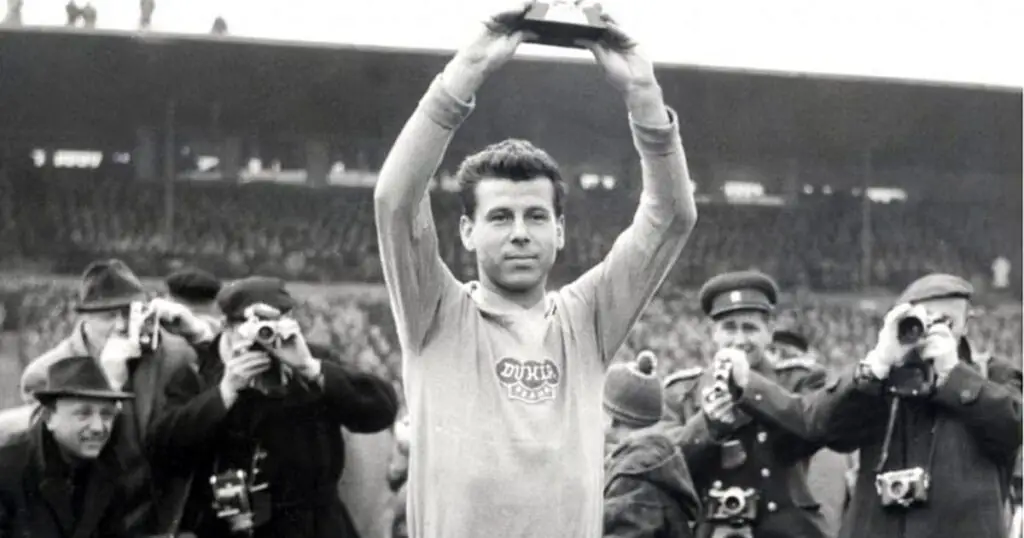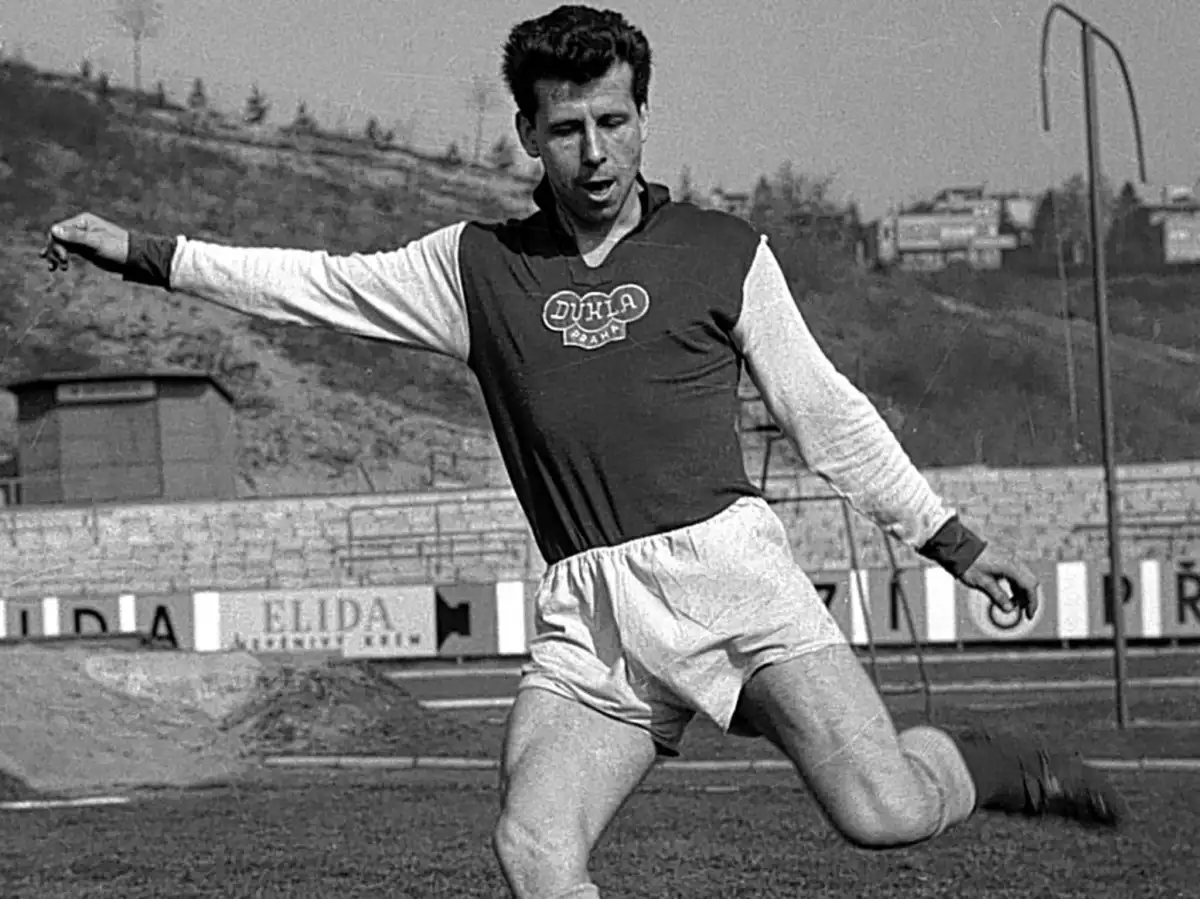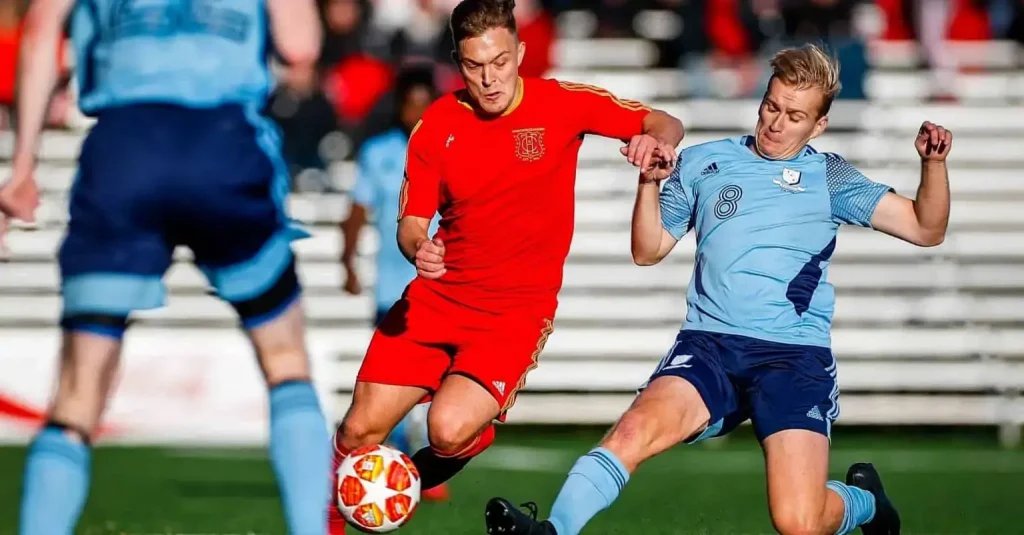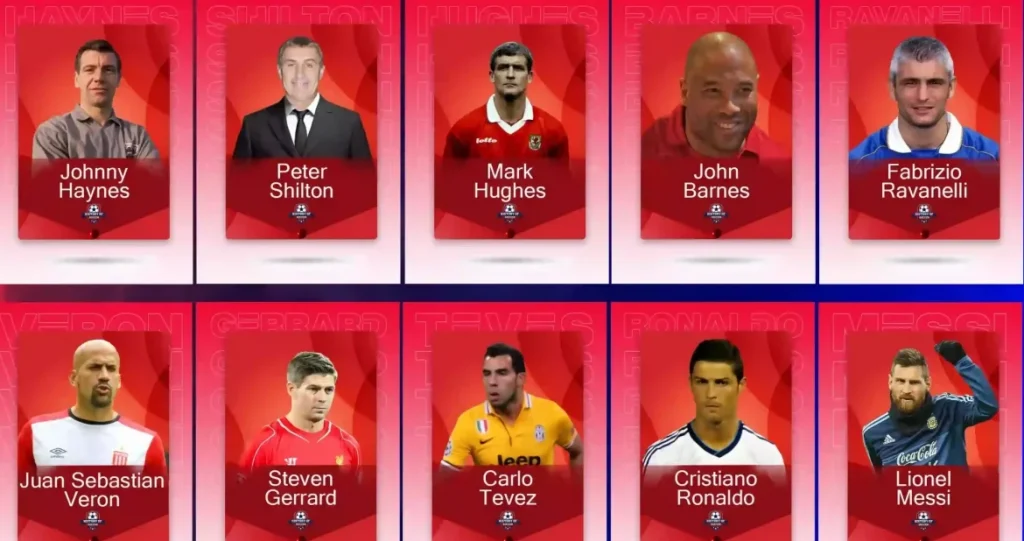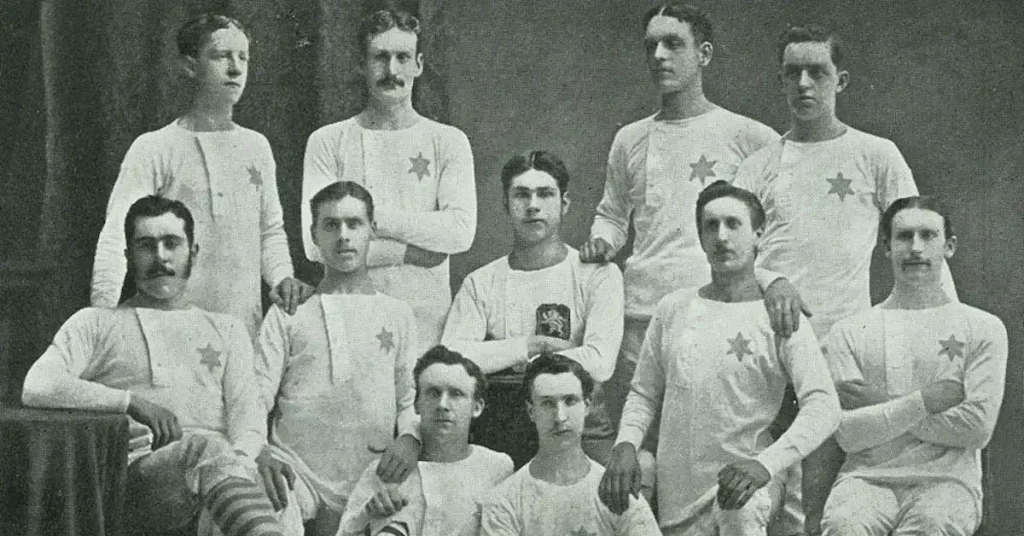In only its seventh edition, Czechoslovakia midfielder Josef Masopust won the Ballon d’Or and shook up the order of European football in the process.
He became the first Czechoslovakian player to win the award and would remain the single victor from his country until Pavel Nedved’s triumph almost four decades later in 2003.
Masopust overcame a big rival to achieve glory in the shape of a rising Portuguese superstar forward before finally claiming Europe’s most prestigious individual honour. In 1962, Josef Masopust became the pride of Central Europe.
A Rise Beyond His Homeland
Josef Masopust is relatively unknown to many modern day fans of the game. Yet during the developing 1960’s footballing landscape his reputation quickly grew and he soon transcended any modest Central European beginnings.
The Czech was generally the workhorse of his team, able to create attacking opportunities with excellent ball control and passing range. Masopust could recover the ball in defence and dribble past opponents, possessing an ability to anticipate the opposition’s thought processes and intercept their passes.
The midfielder drove his club side Dukla Prague on to the Czechoslovak First League title in 1961/62. It was a feat he had achieved three times prior and would succeed in doing again on three further occasions.
However, there was another player vying for the Ballon d’Or crown who had enjoyed a stellar season of his own.
Portuguese sensation Eusebio had produced a fantastic campaign. Just 20-years old, he scored an impressive 29 goals in 31 games across all competitions during the 1961/62 season, netting five times on the continent with Benfica beating the mighty Real Madrid to win 1962’s European Cup.
But with the European Championship on the horizon, Masopust took his chance to shine.
The Breakthrough Into Europe
In 1962, Josef Masopust became the epitome of his nation. Throughout the year he won a career high of eleven caps and contributed three goals on the international stage.
Masopust led Czechoslovakia into the 1962 FIFA World Cup Final vs Brazil and even scored the game’s opening goal before the Brazilians fought back to win 3-1.
Largely due to his performances at the tournament, Masopust was named “European Footballer of the Year” in 1962. He also made FIFA’s ‘World Cup All-Star Team’ and formed part of World Soccer magazine’s ‘World XI.’
He ended his international career with ten goals in 63 appearances for his county and at club level scored 79 times in 386 matches for Dukla Prague.
Masopust was later chosen as his country’s ‘Golden Player’ by the Czech Republic Football Association as their “most outstanding player of the past 50 years” and in March 2004 was even named by Pelé as one of the top 125 greatest living footballers.
1962 became the year Josef Masopust was truly recognised as Europe’s finest talent.
1962 Ballon d’Or Top 20
| Rank | Name | Club(s) | Nationality | Points |
|---|---|---|---|---|
| 1 | Josef Masopust | Czechoslovakia Dukla Prague | Czechoslovakia | 65 |
| 2 | Eusébio | Portugal Benfica | Portugal | 53 |
| 3 | Karl-Heinz Schnellinger | West Germany 1. FC Köln | West Germany | 33 |
| 4 | Dragoslav Šekularac | Socialist Federal Republic of Yugoslavia Red Star Belgrade | Yugoslavia | 26 |
| 5 | Jef Jurion | Belgium Anderlecht | Belgium | 15 |
| 6 | Gianni Rivera | Italy Milan | Italy | 14 |
| 7 | Jimmy Greaves | England Tottenham Hotspur | England | 11 |
| 8 | John Charles | Italy Juventus, England Leeds United, Italy Roma | Wales | 10 |
| 9 | Milan Galić | Socialist Federal Republic of Yugoslavia Partizan | Yugoslavia | 10 |
| 10 | János Göröcs | Hungary Újpest | Hungary | 6 |
| 11 | José Águas | Portugal Benfica | Portugal | 4 |
| 11 | Raymond Kopa | France Reims | France | 4 |
| 11 | Denis Law | Italy Torino, England Manchester United | Scotland | 4 |
| 11 | Omar Sívori | Italy Juventus | Argentina | 4 |
| 15 | Luis Del Sol | Spain Real Madrid, Italy Juventus | Spain | 3 |
| 15 | Andrej Kvašňák | Czechoslovakia Sparta Prague | Czechoslovakia | 3 |
| 15 | André Lerond | France Stade Français | France | 3 |
| 15 | Luis Suárez | Italy Internazionale, Spain | Spain | 3 |
| 19 | Flórián Albert | Hungary Ferencváros | Hungary | 2 |
| 19 | Kurt Hamrin | Italy Fiorentina | Sweden | 2 |
| 19 | Horst Nemec | Austria Austria Wien | Austria | 2 |
| 19 | Joaquín Peiró | Spain Atlético Madrid, Italy Torino | Spain | 2 |
| 19 | Viliam Schrojf | Czechoslovakia Slovan Bratislava | Czechoslovakia | 2 |
| 19 | Ernő Solymosi | Hungary Újpest | Hungary | 2 |
Trivia
Josef Masopust won fifteen honours during his 16-year stay at Dukla Prague including eight league titles and three domestic cups.
The 1961/62 season would be Eusébio’s last campaign in which he failed to score thirty goals or more – until six years later when he once again netted 29 times during 1967/68.
Karl-Heinz Schnellinger was both a World Cup runner-up in 1966 and part of the West Germany side that finished third during the 1970 tournament. He never won a major international honour whilst playing for his country.
